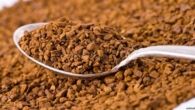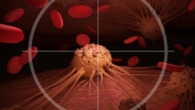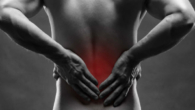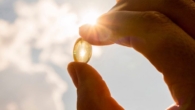
Harmful habits that destroy teeth: dentists' advice
0
Evan Frisby, a consultant for the medical journal WebMD, described eating and behavioral habits that can lead to tooth damage and the development of oral cavity diseases.
Frequent snacking
During a snack, less saliva is produced than during meal time, so pieces of food remain in the teeth for several hours longer. Dentists recommend avoiding too frequent snacks and sticking to snacks with a low sugar and starch content, such as carrot sticks.
Grinding teeth
Teeth grinding, or bruxism, can wear down teeth over time. Most often, this happens in a dream, which makes it difficult to control. Avoiding solid foods during the day can reduce the pain and damage from this habit. Wearing a mouth guard at night prevents damage caused by teeth rubbing during sleep.
Sports without a mouth guard
When participating in any contact or trauma-risk sport it is recommended to wear a mouth guard that protects the upper row of teeth. It can be purchased in sports or dental stores. The mouthguard protects the teeth and prevents injury.
Tongue piercing
A tongue piercing may be fashionable, but biting a metal pin can break a tooth. Lip piercings present a similar risk. And when the metal rubs against the gums, it can cause damage to them. There are many bacteria in the mouth, so the risk of infections and ulcers increases. Also, when piercing the tongue, there is a risk of accidentally puncturing a large blood vessel, which can cause severe bleeding.
Lollipops for cough and sore throat
Many cough and sore throat lozenges contain sugar. Dentists recommend that you clean your teeth thoroughly after their absorption. The sugar reacts with a sticky plaque that coats the teeth. Bacteria in plaque then turn the sugar into acid, which eats away at tooth enamel.
Chewing on ice cubes
Ice is natural and sugar-free, and it may seem harmless. But chewing hard frozen cubes can crack your teeth. Hot and cold foods can cause sharp pain or prolonged toothache. Dentists recommend using sugar-free chewing gum instead of ice.
Marmalade candies
All sweet treats cause caries, but some candies have a stronger negative effect. Chewing candies stick to the teeth, keeping the sugar and the acids that are formed in contact with the enamel for several hours. Therefore, marmalade candies are better to eat during meals, and not as a separate snack. When you eat, you produce more saliva, which helps wash away sugar and acids.
Sugar drinks
Many drinks contain a lot of sugar. This applies to sweet carbonated drinks, fruit juice, cold sports drinks, etc. Similar to candy, sugary drinks cause an acid attack on tooth enamel. Their frequent use can lead to the development of caries. The best way to avoid dehydration in the gym is to drink water without sugar, and fruit juice can be diluted with a small amount of water.
Wine
The acids in wine are corrosive. tooth enamel, creating irregularities that make teeth more vulnerable to staining. Red wine also contains deep chromogen pigment and tannins that help the color stay on the teeth. This combination allows the red color of the wine to remain on the enamel for a long time. White wine has a similar negative effect, making the enamel vulnerable to staining from other drinks, such as coffee. The staining effects of red and white wines can be combated by rinsing the mouth with water after drinking or using a toothpaste with a mild whitening effect.
Potato chips
Bacteria in plaque, starchy products, like sugar, are broken down into acids. They can attack the teeth for 20 minutes and longer if food remains between the teeth. Flossing is recommended after eating potato chips or other starchy foods that can get stuck in your teeth.









Leave a Reply